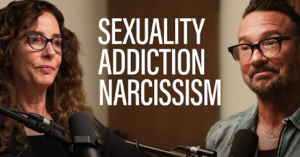“Open your heart and take us in,
Love–love and me.”
~ William Ernest Henley
Every person possesses the potential for open-heartedness–for inclusive understanding and acceptance of another. The real art is to stretch into open-heartedness right when you feel most like isolating and shutting down. It’s so easy to close your heart, especially against a partner (and against all humankind, at times). We call withholding love “being cold” while open-heartedness is called “being warm,” and it’s possible that vital energy is in fact shared when you open your heart to another.
But first, open your heart to yourself. Show yourself love even when–especially when–you fall short, because shame, disappointment, or regret can never open your heart.
There’s a saying that indulging anger is like picking up a blazing ember to throw at someone–you get burned in the process. It’s the same with close-heartedness. You might want to close your heart to protect yourself from intimidating or hostile forces, and yet closing your heart is one of the most hurtful acts you can do to yourself. Closing your heart as a form of protection is a contradiction. Your only true protection in any challenging situation is to open your heart so you can keep the vital energy flowing inside you.
Daily Healthy Sex Acts:
- Share with a partner or friend: What opens your heart? What closes your heart?
- With your hands, feel the vibration of your own opening heart. Imagine that vibration expanding and basking everyone you encounter today in its warmth and energy.
- Practice synchronized heart-opening with your beloved. Explore together what it feels like to close and open the vital energies of loving hearts.



